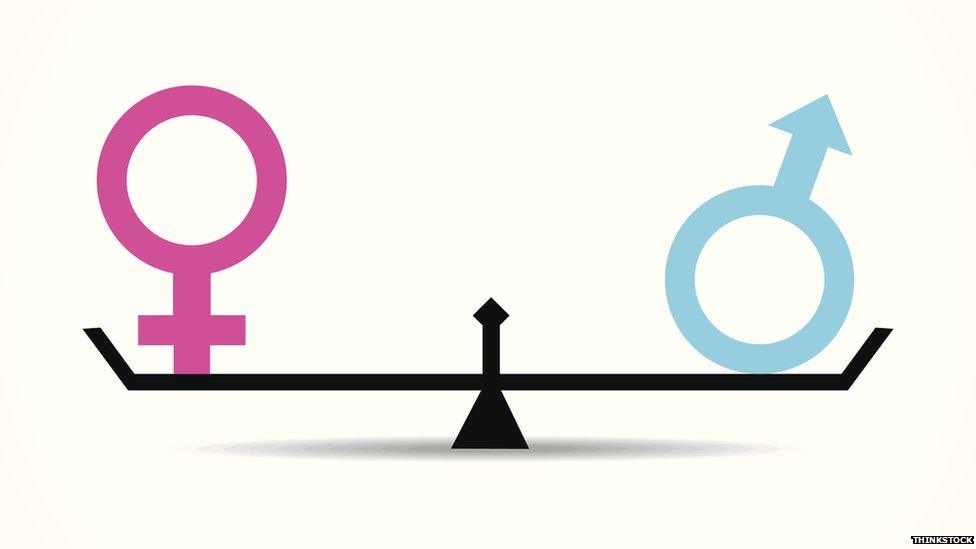Gender pay gap: Asking for a pay rise after maternity leave and getting promotion
- Published

Full-time male managers earn on average £8,964 more than female managers - that's about £500 per month after tax.
That gap steadily widens in the years after babies are born.
Wages aren't lowered for women who reduce their hours, according to the Institute for Fiscal Studies, external, but by working fewer hours they are missing out on experience and promotion.
According to a management salary survey, external, men are 40% more likely than women to be promoted in management.
Leah is worried that having a baby will harm her promotion chances., external
"Women shouldn't be disadvantaged by taking time off for maternity," says John Skelly, employment specialist and partner at Laytons Solicitors.
"Any disadvantages should be neutralised and discarded when managing that person's employment."
John explains that the reduced experience gained due to time off on maternity should not come into account when being considered for a promotion or pay rise.
If you think you're a part of the gender pay gap, speak up
John says that there is "a lot of protection in the law" which will help.

He suggests that you speak to fellow employees about their pay situation, if they are willing to share, and try to get some facts and figures to back up your feelings.
This will be made a lot easier next year when new gender reporting will mean companies which employ more than 250 people must publicly share that information.
They will have to show the average salary as well as the proportion of males and females receiving bonuses.
If you then take those figures to your boss and they don't act on it, you can start a formal grievance procedure.

John explains that there should be one for you to internally raise an issue.
Meetings will follow the initial complaint and then an outcome will be reached.
Finally there will be the opportunity to appeal.
Find us on Instagram at BBCNewsbeat, external and follow us on Snapchat, search for bbc_newsbeat